How to Test your Indoor Air Quality
 Do you ever wonder about the quality of the air inside your home? Surprisingly, the air inside your home likely contains more pollutants than the air outside. Perhaps you’ve never considered it before. Maybe you have but you don’t know how to go about testing the quality of your air. It’s certainly something worth looking into, for your own health and the health of your family and pets. Your central air system is key to indoor air quality, so one of the best places to start is with your Greensboro HVAC service.
Do you ever wonder about the quality of the air inside your home? Surprisingly, the air inside your home likely contains more pollutants than the air outside. Perhaps you’ve never considered it before. Maybe you have but you don’t know how to go about testing the quality of your air. It’s certainly something worth looking into, for your own health and the health of your family and pets. Your central air system is key to indoor air quality, so one of the best places to start is with your Greensboro HVAC service.
Start with an HVAC Inspection and Tune-Up to Improve Indoor Air Quality
Before you even bother with testing the air quality in your home, first call your Greensboro HVAC company for an inspection and tune-up. A complete HVAC inspection and tune-up should include:
- Furnace or Heating System(s). If you have a furnace that runs on natural gas, propane, or oil, it creates carbon monoxide as a byproduct of burning fuel. A properly operating system will produce minimal amounts of carbon monoxide and vent it outside of your home. An inspection will reveal any problems that could cause carbon monoxide to be present in your home. A tune up will fix any of these problems.
- Air Conditioner(s). Air conditioners are typically electric, which means they don’t produce carbon monoxide, but they can be the cause of other air pollutants such as mold and mildew. Mold and mildew can grow inside of air conditioning systems that are not properly controlling humidity, and those major allergens can cause all sorts of health problems. An inspection will reveal any mold or mildew growth and a thorough cleaning will remove it.
- Ventilation. The ventilation for your HVAC system plays a big part in the removal of carbon monoxide and the prevention of mold and mildew growth. The ductwork and other parts of the ventilation system need to be inspected and repaired if necessary to prevent indoor air pollution.
Indoor Air Quality Tests: Which is Right for You?
There are do-it-yourself kits for various air pollutants as well as professionals who will come and test your air. Typically the do-it-yourself kits are less expensive but may not be as reliable. If cost is a factor for you, it can be helpful to determine what you should test for, since many of the DIY kits only test for one particular air pollutant. Some of the typical household air pollutants are:
- Volatile Organic Compounds (VOCs). These are chemicals found in household cleaners and other items you may keep in the home. One example is formaldehyde, a known carcinogen.
- Lead. Typically found in older homes (before 1978) from paint, or in homes near highways where leaded gasoline pollution is possible.
- Radon. A radioactive gas that occurs naturally within the earth can seep into your home from the ground through cracks in your foundation. Most homes have radon testing before being built or sold, but if you’ve been in your home for many years it would be wise to test again.
- Allergens. Dust mites, pet dander, mold, and mildew are the most common allergens that may exist in your home air.
- Bacteria. Some harmful bacteria can build up in your air and become highly concentrated so as to cause health problems.
- Carbon Monoxide. As mentioned above, carbon monoxide typically comes from your furnace or any other gas appliance you may have.
When purchasing or ordering tests, only choose the ones for the air pollutants you think could be the problem in your home. For example, if you don’t have any gas, propane, or oil appliances, you probably don’t have a carbon monoxide issue. If your home was built in the 1980s or later, you probably don’t have an issue with lead.
Call Berico, your Greensboro HVAC expert, to make sure your home’s air system isn’t the cause of poor quality air in your home: (336) 273-8663.

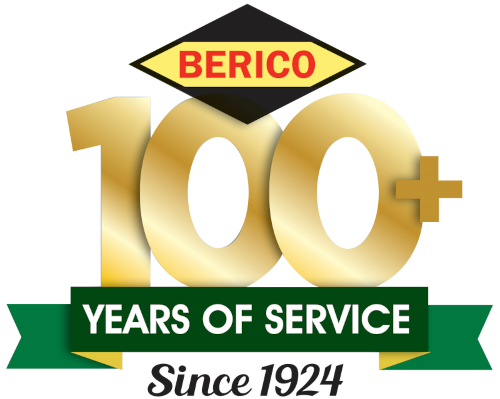
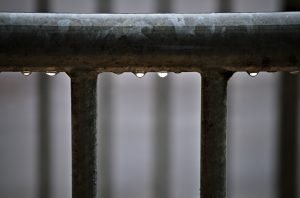 When you notice water leaking anywhere in your home, it can be alarming. When the water is coming from your air conditioner it can be both alarming and puzzling. There are actually some very common reasons your AC may be leaking water, and in most cases, it can be easily repaired.
When you notice water leaking anywhere in your home, it can be alarming. When the water is coming from your air conditioner it can be both alarming and puzzling. There are actually some very common reasons your AC may be leaking water, and in most cases, it can be easily repaired. 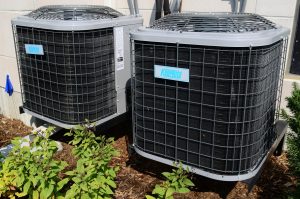 Keeping pests at bay can be a constant battle for homeowners. Like most of us, we appreciate nature but prefer it to stay outside in nature and not in our homes. You may think you have sealed up every spot where pests could enter your home, but there’s one area you may have overlooked: your HVAC system. Unfortunately, your heating and air conditioning system has to allow air to come in and go out, and that opens up your home to the potential for pests to enter. Prevention is the best measure, because once pests get in, it’s a lot more difficult to remove them. Here are some ways to keep your HVAC system pest-proof from your
Keeping pests at bay can be a constant battle for homeowners. Like most of us, we appreciate nature but prefer it to stay outside in nature and not in our homes. You may think you have sealed up every spot where pests could enter your home, but there’s one area you may have overlooked: your HVAC system. Unfortunately, your heating and air conditioning system has to allow air to come in and go out, and that opens up your home to the potential for pests to enter. Prevention is the best measure, because once pests get in, it’s a lot more difficult to remove them. Here are some ways to keep your HVAC system pest-proof from your 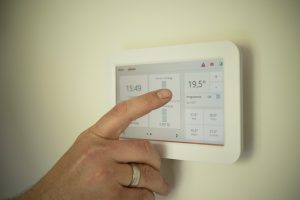 Almost everything is “smart” these days with smart phones a
Almost everything is “smart” these days with smart phones a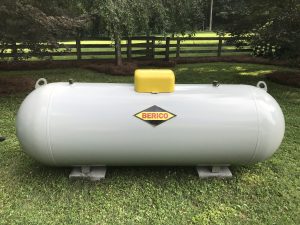 Propane is an excellent alternative home heating fu
Propane is an excellent alternative home heating fu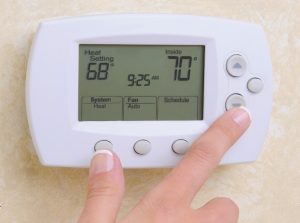 Do you experience uneven temperatures around your home? Are some rooms always warm and others always cold? This problem
Do you experience uneven temperatures around your home? Are some rooms always warm and others always cold? This problem 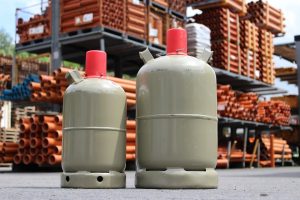 Propane tanks come in a variety of sizes. A home or business should have a tank that is the appropriate size for the
Propane tanks come in a variety of sizes. A home or business should have a tank that is the appropriate size for the 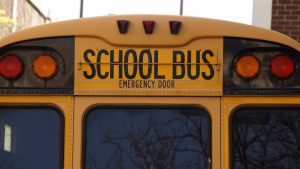 How much do you know about propane? You may know that it’s a clean-burning, non-toxic fuel that is often used to heat homes and fuel backyard grills.
How much do you know about propane? You may know that it’s a clean-burning, non-toxic fuel that is often used to heat homes and fuel backyard grills. 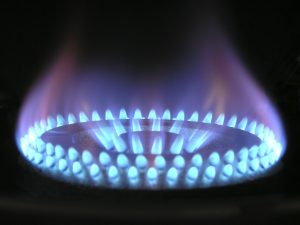 Kitchen ranges come in electric, natural gas, or propane configurations. People from amateurs to professional chefs have their preference when it comes to cooking fuels and appliances. There’s not a lot of difference between cooking with natural gas vs. propane. If your home is already equipped with natural gas for home heating, it’s easy to add a kitchen range or other appliances to that same energy source. When you don’t have access to natural gas, perhaps if you live in a rural area of North Carolina such as Eden, propane is an excellent alternative for home heating and other appliances. Consider the many advantages of a propane cooking range.
Kitchen ranges come in electric, natural gas, or propane configurations. People from amateurs to professional chefs have their preference when it comes to cooking fuels and appliances. There’s not a lot of difference between cooking with natural gas vs. propane. If your home is already equipped with natural gas for home heating, it’s easy to add a kitchen range or other appliances to that same energy source. When you don’t have access to natural gas, perhaps if you live in a rural area of North Carolina such as Eden, propane is an excellent alternative for home heating and other appliances. Consider the many advantages of a propane cooking range. When it comes to saving energy, the debate is always about which energy-saving improvements are actually worth the money. Can you actually save money with energy efficiency upgrades? The key is choosing items that are the lowest cost up front that can save you the most in the long run. A lot of the best investme
When it comes to saving energy, the debate is always about which energy-saving improvements are actually worth the money. Can you actually save money with energy efficiency upgrades? The key is choosing items that are the lowest cost up front that can save you the most in the long run. A lot of the best investme